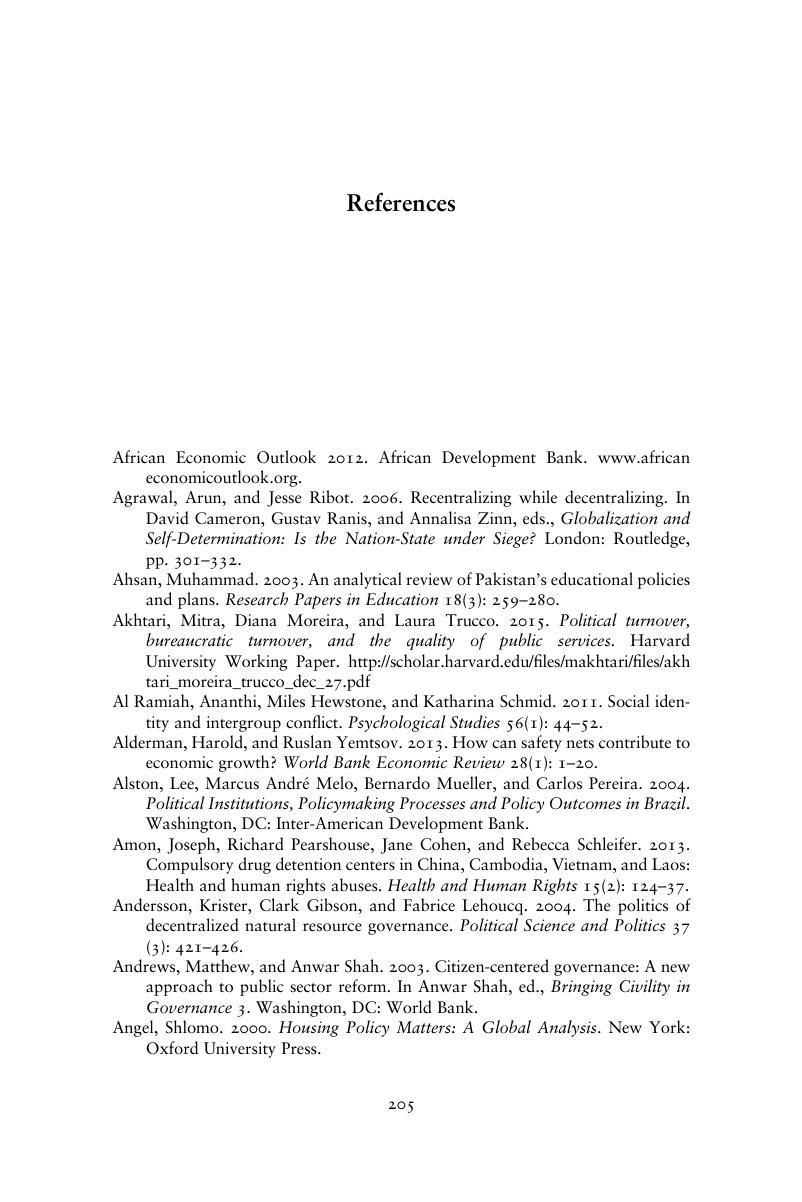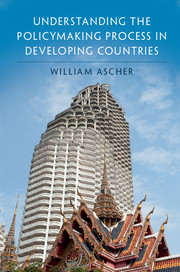Book contents
- Understanding the Policymaking Process in Developing Countries
- Understanding the Policymaking Process in Developing Countries
- Copyright page
- Dedication
- Contents
- Tables
- Acknowledgments
- 1 Challenges to Effective Development Policymaking
- 2 The Policy Process in Developing Countries Really Is Different
- 3 The Expert’s Risk: Endorsing Ill-Fated Initiatives
- 4 The Expert’s Frustration: Rejection of Sound Knowledge or Recommendations
- 5 Overcoming the Impasses That Block Sound Initiatives
- 6 Inconsistent or Incomplete Enactment of Initiatives
- 7 Inadequate Accommodation for Excessive Deprivation
- 8 Reducing Avoidable Conflict
- 9 Minimizing Shortsighted Policies
- 10 Adapting Policy Initiatives and Institutions
- 11 Conclusions
- References
- Index
- References
References
Published online by Cambridge University Press: 04 November 2017
- Understanding the Policymaking Process in Developing Countries
- Understanding the Policymaking Process in Developing Countries
- Copyright page
- Dedication
- Contents
- Tables
- Acknowledgments
- 1 Challenges to Effective Development Policymaking
- 2 The Policy Process in Developing Countries Really Is Different
- 3 The Expert’s Risk: Endorsing Ill-Fated Initiatives
- 4 The Expert’s Frustration: Rejection of Sound Knowledge or Recommendations
- 5 Overcoming the Impasses That Block Sound Initiatives
- 6 Inconsistent or Incomplete Enactment of Initiatives
- 7 Inadequate Accommodation for Excessive Deprivation
- 8 Reducing Avoidable Conflict
- 9 Minimizing Shortsighted Policies
- 10 Adapting Policy Initiatives and Institutions
- 11 Conclusions
- References
- Index
- References
Summary

- Type
- Chapter
- Information
- Understanding the Policymaking Process in Developing Countries , pp. 205 - 228Publisher: Cambridge University PressPrint publication year: 2017



